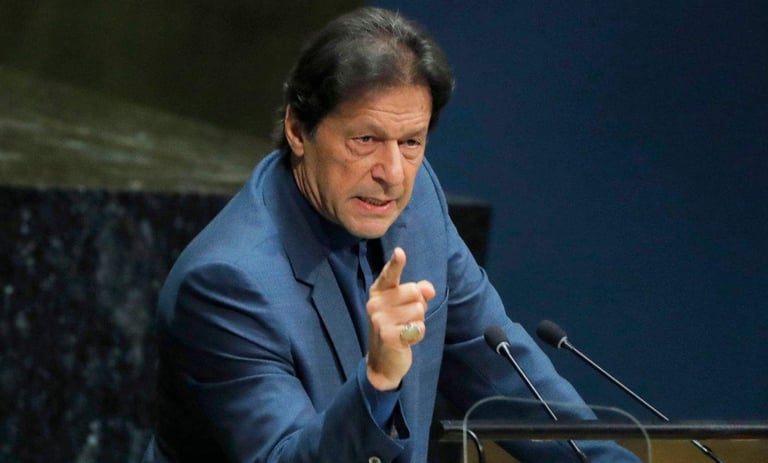Supreme Court Delays Imran Khan,s Bail Hearing in 9 May Case
Pakistan’s Supreme Court adjourns Imran Khan’s bail plea in the May 9 riots case until August 12, intensifying political and legal uncertainty.
By Raja Awais Ali
7/29/20252 min read


Imran Khan’s Bail Hearing in May 9 Case Postponed by Supreme Court Until August 12, Intensifying Political Uncertainty
On July 29, 2025, the Supreme Court of Pakistan adjourned the hearing on former Prime Minister Imran Khan’s post-arrest bail petition in the May 9 riot cases, postponing it until August 12. A two-member bench, headed by Chief Justice Yahya Afridi and Justice Muhammad Shafi Siddiqui, heard the case. Imran Khan’s lawyer, Salman Akram Raja, requested the court to issue notices to the respondents and grant additional time to prepare. The court declined to issue any notices and deferred the hearing without delivering a ruling, further deepening the uncertainty surrounding the political atmosphere.
The petition challenges the Lahore High Court’s decision to deny Imran Khan bail in multiple FIRs related to the violent protests that erupted nationwide on May 9, 2023, following his arrest by the National Accountability Bureau (NAB). The government described the protests as a coordinated attempt to incite unrest and accused the Pakistan Tehreek-e-Insaf (PTI) of orchestrating the attacks on state and military installations.
According to Imran Khan, he was in NAB custody on May 9 and therefore could not have planned or ordered any protests. His lawyer argues that the prosecution's evidence is contradictory, and many of the testimonies have already been declared unreliable by lower courts. The defense maintains that the case qualifies for "further inquiry" and therefore warrants bail under Section 497(2) of the Criminal Procedure Code.
This postponement has divided legal experts. Some view the court's decision as a sign of judicial caution, while others believe the case is not merely legal but deeply political. Public opinion is also split. Supporters of Imran Khan consider the case politically motivated, while critics argue that the law must apply equally to all citizens, regardless of status.
International observers are closely monitoring the case. Western governments and human rights organizations have called on Pakistan to ensure transparency and fairness in its legal proceedings. Prolonged political instability could harm Pakistan’s economy, foreign relations, and overall democratic image on the global stage.
The next hearing is now scheduled for August 12. Imran Khan’s legal team is expected to refine its arguments, while the government and judiciary prepare for what may be a defining moment in Pakistan’s legal and political landscape. This case is no longer just about bail — it has become a symbol of the nation’s struggle between accountability, politics, and justice.